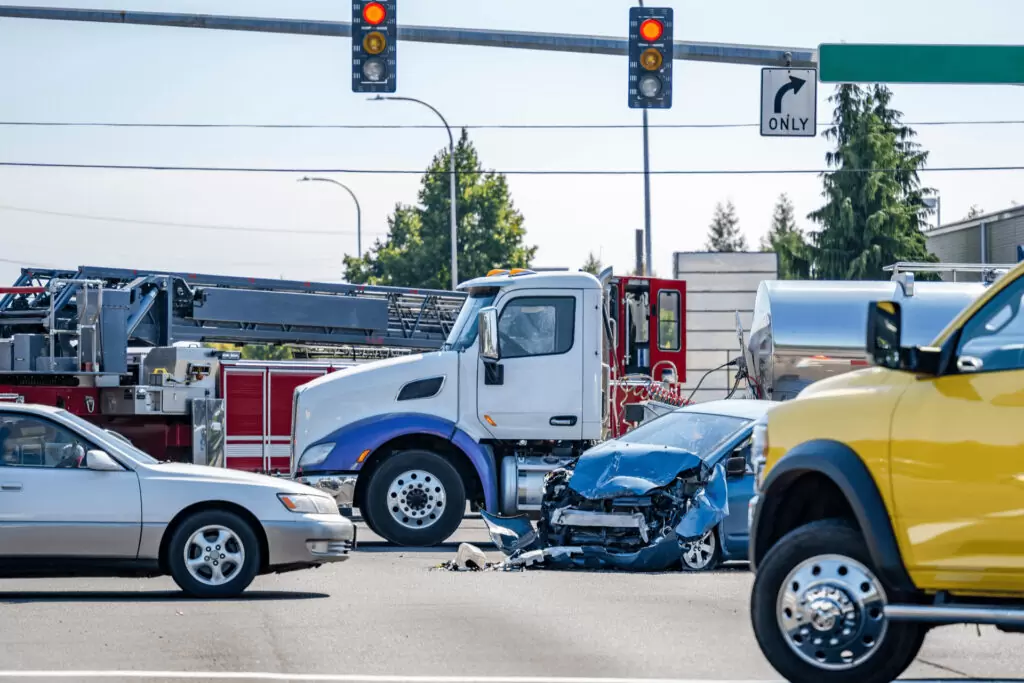In the vast and bustling state of Texas, trucks are a common sight on the highways, carrying goods from coast to coast and fueling the economy. Poor maintenance significantly contributes to truck accidents due to the sheer size and complexity of these vehicles. When trucks are not properly maintained, they pose potential hazards to both the truck driver and other road users. It is crucial to emphasize the role of poor maintenance in impacting safety on the roads. This article delves into the significance of maintenance in preventing truck accidents, highlighting common maintenance issues, their impact on road safety, and the legal framework surrounding truck maintenance in Texas.
Understanding Truck Maintenance
Truck maintenance encompasses a range of activities, from regular checks and repairs to mandatory inspections aimed at ensuring the vehicle remains in optimal working condition. The importance of maintenance for truck safety is paramount; it is the cornerstone upon which the reliability and safety of a truck rest. In Texas, as in the rest of the United States, there are stringent legal requirements for truck maintenance, designed to minimize the risk of accidents caused by mechanical failures.
Common Maintenance Issues Leading to Accidents
A myriad of maintenance-related issues can lead to accidents. Some of the most prevalent include:
- Tires: Issues such as wear and tear, incorrect pressure, and tread separation can lead to blowouts, causing the driver to lose control.
- Brakes: Failure due to lack of inspection, maintenance, or the use of worn-out parts can result in an inability to stop the truck in time to prevent an accident.
- Lights and Reflectors: Essential for visibility, especially during night-time or adverse weather conditions, malfunctioning lights and reflectors can lead to collisions.
- Steering Mechanisms: The dangers of steering failures are acute, potentially leading to catastrophic accidents if the driver cannot control the vehicle.
- Coupling Devices: Improper coupling can result in trailers detaching from the truck, creating hazardous situations on the road.
The Impact of Poor Maintenance on Road Safety
The consequences of neglecting truck maintenance are far-reaching. While specific statistics on accidents caused directly by maintenance failures are challenging to pinpoint, the Federal Motor Carrier Safety Administration (FMCSA) reports that vehicle-related factors were cited in approximately 29% of all large truck crashes. This underscores the critical role that proper maintenance plays in preventing accidents.
Case studies further highlight the potential consequences of maintenance neglect. For instance, tire blowouts due to inadequate tire maintenance have been implicated in numerous accidents on Texas highways, leading to injuries and fatalities. These incidents not only cause immediate harm but also contribute to a broader concern for road safety, affecting public perception and trust in the trucking industry.
For more insights into truck safety and common causes of truck accidents in Texas, visit Truck safety in Texas.
Legal Framework and Liability
Texas, like other states, adheres to both state and federal regulations regarding truck maintenance. The Texas Department of Public Safety enforces these regulations, which are in place to ensure that all trucks on the road meet specific safety standards. Federal regulations, set forth by the FMCSA, also play a significant role in dictating maintenance standards and schedules for trucks operating interstate.
Liability in accidents caused by poor maintenance is a complex issue, involving multiple parties. The trucking company itself is often held responsible, as they are required to maintain their fleet in accordance with legal standards. Maintenance service providers may also be liable if their negligence contributed to the accident. Additionally, truck manufacturers could be held accountable if a design or manufacturing defect led to the maintenance issue. Understanding the nuances of liability is crucial for those affected by truck accidents, as it determines who can be pursued for damages.
Preventative Measures and Best Practices
To mitigate the risk of accidents caused by poor maintenance, several preventative measures and best practices can be adopted:
- Regular Inspections and Maintenance: Trucking companies should adhere to a strict schedule of inspections and maintenance, going beyond the minimum legal requirements to ensure their vehicles are in top condition.
- Use of Technology: Modern technology, including telematics and predictive maintenance tools, can help in monitoring the condition of trucks in real-time, alerting fleet managers to potential issues before they lead to accidents.
- Education and Training: Maintenance personnel should receive ongoing education and training on the latest maintenance standards and practices. This ensures they can identify and address potential issues effectively.
The Future of Truck Maintenance and Safety
The future of truck maintenance looks promising, with technological advancements playing a pivotal role in enhancing safety. Innovations in truck maintenance technology, such as automated diagnostic systems and advanced materials for parts, promise to reduce the likelihood of mechanical failures. Additionally, changes in regulations may further tighten maintenance requirements, reflecting the evolving understanding of the role of maintenance in ensuring road safety.
The advent of autonomous trucks presents an interesting development in the landscape of truck safety. These vehicles, designed to operate with minimal human intervention, rely heavily on sophisticated maintenance systems to prevent malfunctions. While fully autonomous trucks are still on the horizon, the technology being developed for them is expected to trickle down to conventional trucks, potentially reducing maintenance-related accidents.
Conclusion
The critical role of maintenance in preventing truck accidents cannot be overstressed. As we have seen, poor maintenance is a significant factor contributing to accidents on Texas roads, with far-reaching consequences for road safety. It is imperative for industry stakeholders, from trucking companies to maintenance service providers, to prioritize maintenance and adopt best practices. By doing so, they not only comply with legal requirements but also contribute to the safety and well-being of all road users. The future of truck safety is inextricably linked to advancements in maintenance practices and technology. As we move forward, it is essential to continue focusing on education, regulation, and innovation to reduce the incidence of maintenance-related accidents and enhance the safety of our roads.
FAQs
What are the most common maintenance issues in trucks?
The most common issues include tire wear and tear, brake failures, malfunctioning lights and reflectors, steering mechanism failures, and improper coupling.
How often should trucks undergo maintenance checks?
Trucks should undergo maintenance checks in accordance with both federal and state regulations, which typically require regular inspections at least once a year. However, best practices suggest more frequent inspections to ensure safety.
Who is liable if poor maintenance leads to an accident?
Liability can fall on multiple parties, including the trucking company, maintenance service providers, and truck manufacturers, depending on the specific circumstances of the accident.
Can technology truly make trucks safer?
Yes, technology such as telematics, predictive maintenance tools, and automated diagnostic systems can significantly enhance truck safety by identifying potential issues before they lead to accidents.




